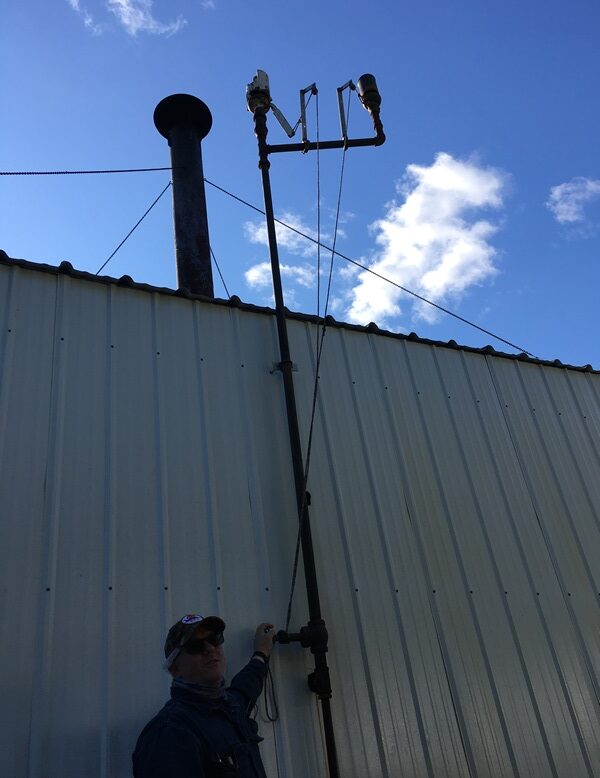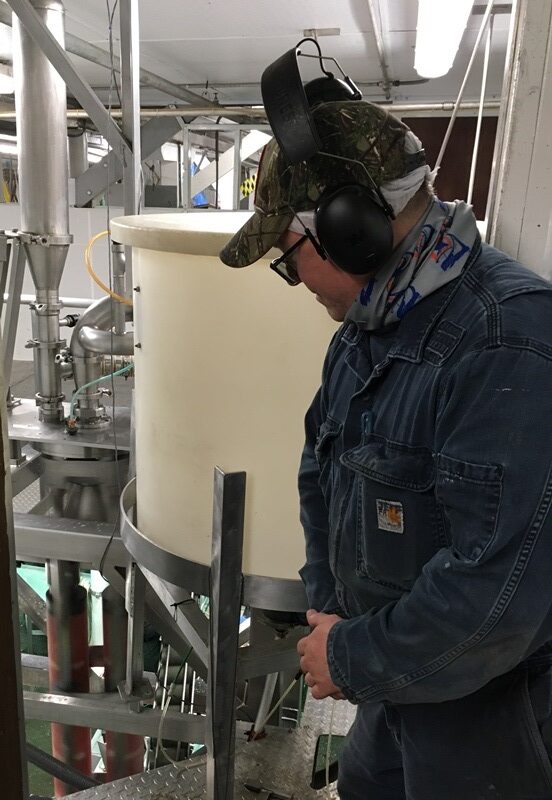
Petersburg is home to one of Alaska’s biggest commercial fishing fleets. And a lot of its catch is processed locally by OBI Seafoods, in a plant that has been around since the town’s founding. On August 9th, the plant celebrated 100,000 cases of pink salmon processed so far this summer. KFSK’s Katherine Monahan reports.
Head machinist Jeff Randrup blows first one, and then both of OBI Seafoods’s steam whistles. He’s up on a manlift (like a forklift, but for lifting people), leaning into a huge cloud of steam in his visor and welding gloves. Below him, employees cheer and cover their ears.
“It’s to signify 100,000 cases of salmon of pink salmon,” he says. “It involves the town. It’s very noisy.”
Each of those 100,000 cases holds 48 cans. So that’s close to five million cans of pink salmon.
Walking through the cannery, we pass hundreds of seasonal workers, many of them international, from places like Serbia, Ukraine, Mexico, and the Philippines. They are unloading fish from boats, weighing it, chopping it, and passing it down gleaming counters into machines called salmon fillers.
“And then it comes up this elevator,” explains Randrup, “and then down to a feeder and up to the filler and then eventually makes its way down the tubes and into the cans. You can see the cans coming out of the filler right there. So we do about seven cans a second.”

It looks like a clean, spacious Rube-Goldberg machine. It looks like the inner workings of the town. Randrup says that from here, the cans get shipped out all over the world.
“My brother lives in Hawaii,” he says. “He’s seen our product on the shelf there. And I have another brother in Minnesota who’s seen it there and another brother in New York who’s seen it there. And then some goes I believe to Europe, so, everywhere. Pretty cool, huh?”
This summer OBI is reaching the milestone of 100,000 cases a day earlier than it did last year. In 2021, the plant reached its second 100,000 on August 24th. Randrup thinks this summer it might beat that date too. And when it does, he’ll get to blow the whistle again.
“I expect the next 100,000 will be fast,” he says, “because we’re slammed, and we will be slammed.”
It will be another chance to celebrate the town’s economic heart – the fishermen, the cannery workers, and of course, the fish.











